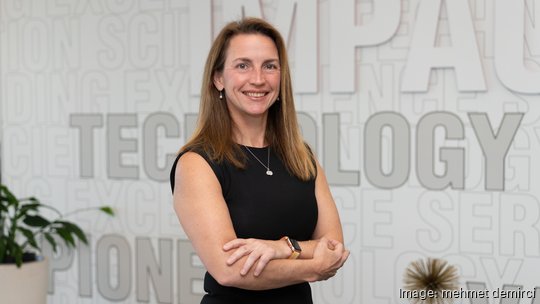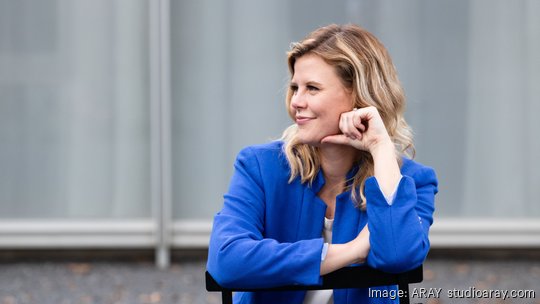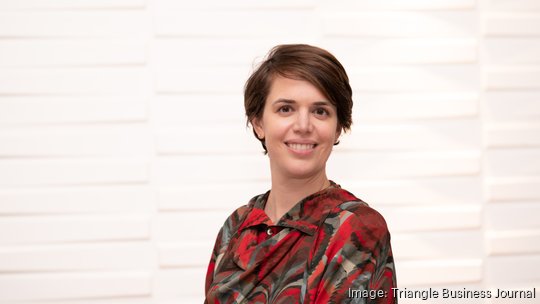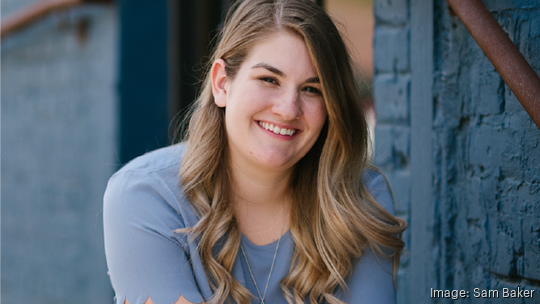
It’s bold to create a business eponymous with your name. But that’s exactly what people like Eva Garland and Brooks Bell did in the Triangle. They found their respective niches, crafted businesses and went after clients.
And they’re not alone.
In the Triangle, multiple entrepreneurs have found success in building consulting brands. And with a slew of recent layoff announcements, interest in the creation of consulting startups has picked up.
Triangle Inno spoke with four women on what entrepreneurs should know before jumping off their consulting cliffs.
Eva Garland
Eva Garland came to the Triangle to be on the chemistry faculty at North Carolina State University, soon joining the tech transfer train and spinning out Agile Sciences, which was developing a new class of antibiotics. It was a great time to raise money – until It wasn’t.
The market crash in 2008 had companies across the region struggling, surprising to Garland, who saw firsthand “the incredible science we had here.” Garland was scrappy, applying for every grant she could find. And ultimately Agile was able to secure capital. But Agile’s success was rare. So she started giving talks, sharing information on government funding resources at places like First Flight Venture Center in Research Triangle Park.
She even wrote a book on the topic, and before she knew it she had a business that would become Eva Garland Consulting. A decade later, it’s become a company with 53 people, a diverse population of scientists that keeps growing, she said.
“I think the trick is, you have really got to have something that is unique, that is of value to others,” Garland said.
Garland said one problem consulting entrepreneurs run into early on involves the price tag. Some early companies fail because founders expect “full dollar amounts” day one.
“It’s important to do whatever you can to get that initial client,” Garland said. “It’s not a day job. You’re not going to get a paycheck just coming in on a regular basis. You have to be really creative in how you market yourself and also be willing to take the time that’s needed to build up that brand reputation.”
Christina Marie Noel

Christina Marie Noel has been a consultant her entire career. After graduating from UNC in 2009 she landed in health care consulting, spending a few years helping hospitals identify underpayments – a role she equated to putting “a band aid on a hemorrhaging system.”
In hopes of pivoting her career, she got her MBA at the University of Georgia. And an internship with B-Lab helped her find her niche: B Corp companies.
After school, Marie landed at Durham’s the Redwoods Group, where she took on projects with impact organization such as the YMCA and the Jewish Community Center. And she became involved in the B Corp community. By day, she was working on social impact projects for clients, to the tune of 45 hours per week. In her off hours she was volunteering an additional 10 to 15 hours. Burnout hit hard.
In an effort to control her own schedule, Marie took the leap and started taking on her own freelance work, leading to her market research-focused consultancy, Noel & Co.
She recommends people considering consulting find their own “unique ability.” When your focus is too broad, “it’s a bit harder to command a price that’s sustainable.”
Noel also advises performing your first projects for “an affordable price … so you can gain that first happy client.”
“It takes about three years to build a brand,” Marie said. “What no one told me was just the power of time.”
Brooks Bell

The company that would bear entrepreneur Brooks Bell’s name got its start two decades ago with a website company she launched in college.
As other consultant entrepreneurs have said, Bell’s mindset was making early customers happy – not raking in top dollar checks.
“You’ve got to make those first clients ecstatic about your work so they go out of their way to tell everybody about you,” she said.
A few opportunities later, and AOL – then a dominant Internet force – asked Bell to help it with banner ads. But it put what she created to the test.
At the time, Bell didn’t know what an A/B test was, where an audience is split to see which campaign works better. If her banner ad failed to perform better than its control ad, they wouldn’t hire her again. But it was better.
The idea of A/B testing was so intriguing, that Bell decided to spin Brooks Bell into a company focused on helping companies use this kind of data to drive product decisions. She worked with dozens of people at AOL. And when AOL had layoffs a few years ago, sending those contacts to other companies, “I had 10 new clients.”
“At the beginning, it’s all about your trustworthiness, people trust you to be competent and they trust you to really hear them and to hear their needs,” Bell said.
Bell transitioned from CEO to executive chairman in 2019, and today uses many of those same skills as she works to educate the public about young-onset colon cancer.
Sam Baker

Sam Baker of Sam Baker Consulting had years of corporate experience under her belt at brands such as Abercrombie & Fitch by the time she joined Brooks Bell as an optimization consultant. She had always wanted to venture out on her own, and when she became pregnant, suddenly controlling her schedule became more critical than ever before. She started consulting as a side gig after-hours in 2018.
She went full time in 2022.
Baker specialized in A/B testing – and the corporate experience she had gleaned from her prior career was the niche she leveraged to differentiate.
Baker predicts consultants laid off from the corporate world may find they have an advantage, because they know how firms in their industry operate.
Her advice for those getting started?
“Get a coach,” Baker said. “Whether they know it or not, they’re about to go on a crazy journey and it’s very easy to lose motivation or get stuck, so having somebody in your back pocket is really, really helpful.”
Baker said it’s also important to build a pipeline – and not just of clients. She recommends targeting people at firms working with companies that would be your ideal clients.
“Find referral partners that will really work for you and help push business your way,” she said.